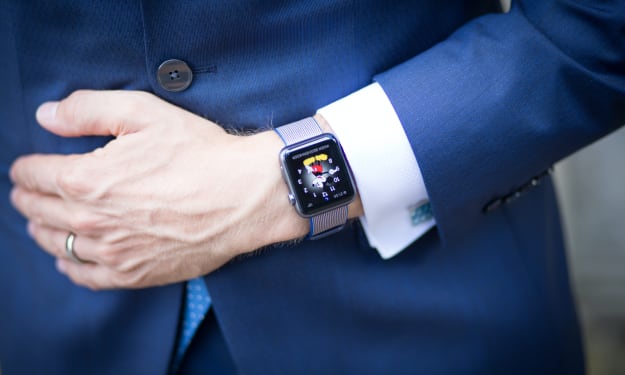Is Digital Dependence a Cause for Concern?
Digital

Do you have a phone addiction? What about communicating on social media or using the internet? What about playing games online?
You're not alone if you think you could be addicted to your digital gadgets. Look at these alarming statistics:
210 million individuals are said to be addicted to social media globally.
Every 5.5 minutes on average, Americans check their phones, on average, 344 times every day.
Nearly 50% of Americans think they have a cellphone addiction.
In 2022, the typical American will spend 44 days-or about one month and a half-on their phone.
An addiction is characterized by a compulsive drive to use digital technology, and it is a widespread issue in our culture right now.
And digital addiction affects more than simply our interpersonal ties. Additionally, it depletes our focus, making it harder to enter a creative flow. Additionally, the epidemic has only increased our reliance on technology.
Designed to Be Addictive
Snapchat, TikTok, Facebook, and Instagram are just a few examples of the social media platforms and applications that are made to be addictive. Big internet companies have a lot to gain by keeping you on their platforms for as long as they can. After all, the longer we stay on a website or app, the more money they make from advertising.
The extremely addictive apps developed by tech corporations that keep us coming back time and time again leverage behavioral design. The unending scroll of most social media platforms ensures that there is no limit to our intake of updates, photographs, and advertisements. "Like" buttons and comments features draw us in and make us want to return to the applications to check our "scores."
These characteristics are not by chance. Despite the potential harm to our mental and emotional health, they are a part of a larger strategy to increase the amount of time we spend using digital gadgets.
How to Curb Digital Addiction
You might want to take action to make a bit more room in your head if you feel that your digital addiction is really affecting your life and your capacity to conduct yourself in a healthy manner.
It raises philosophical issues, such as how my usage of my phone may be impairing my capacity to be a good parent, partner, or friend. According to Dr. Anna Lembke, author of Dopamine Nation and a pioneer in the field of addiction therapy, I do think there is a price, but I don't think we really understand it because it's difficult to perceive when you're in it.
However, it isn't realistic to lead a totally smartphone- or digital device-free existence these days, especially with so many facets of our everyday lives taking place online, including remote employment, digital payments, banking, and many other activities. A better strategy is to control compulsive behavior by limiting our phone use and establishing a more positive, healthy connection with our displays.
Here are some doable methods for reducing the time spent online or on your phone:
By engaging in a 12- to 24-hour digital detox, you may reset your brain's circuits and gain perspective on your connection with screens.
Allocate a set period of time each day to just be silent and think.
Set your phone to "bedtime" mode, which will automatically turn off all alerts at a specific hour of the night.
Use tools like Freedom or Space to set time limitations for applications or websites
Consider disabling all of your phone's notifications.
Remove the time-wasting or distracting apps from your phone.
Set up a "one screen" rule in your home, prohibiting the usage of more than one screen at once (for example, don't watch TV while browsing your social media).
Use a kSafe time-locking container for a more extreme approach to overcoming smartphone addiction. Your phone will be locked in the container until the timer goes off if you place it there and set a timer for the duration of which you want it to be out of your reach. You are unable to access your phone or turn off the timer once it has been set.
Breaking Free of Digital Addiction
You may have a better connection with the digital gadgets in your life if these suggestions have helped you recognize and avoid the risks of digital addiction.
About the Creator
Goran Vinchi
Passion for writting






Comments
There are no comments for this story
Be the first to respond and start the conversation.